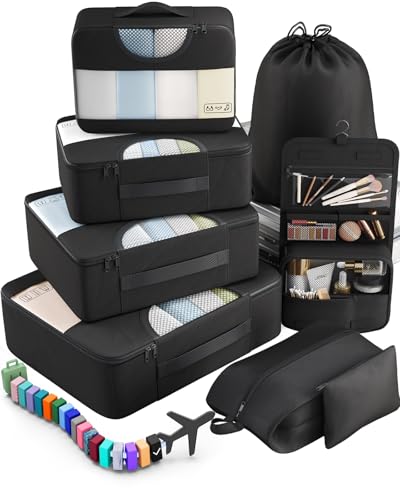In Hunza Valley, they use Type C and D power plugs and outlets. The voltage is 230V, and the frequency is 50Hz.
So, you’ll need a travel adapter in Hunza Valley. Their plugs and outlets are different from the Type A and B ones we use back in the States.
Quick Overview of the Plugs in Hunza Valley:
- Plug type in Hunza Valley: C and D
- Standard voltage: 230V
- Frequency: 50Hz
- Need a travel adapter? Yes, you do need a travel adapter
- Need a voltage converter? May be required for certain electronics
- Recommended plug adapter: Vintar Universal Travel Adapter Kit
This page is based on verified information from local power agencies, international standards organizations such as the IEC, and feedback from travelers who’ve recently been there.
The Only Travel Adapter You’ll Need in Hunza Valley
No one wants to deal with charging issues in Hunza Valley. We don’t sell travel adapters, but we’ve found the most reliable and safe option, so you never run out of power. Here it is:
Recommended Travel Plug Adapter
by 1,000+ travelers on Amazon
Already on the road or at your hotel and just realized you didn’t bring a power adapter? No worries. You can often buy one nearby.
That said, having one ready before your next trip just makes things easier—and saves you from settling for whatever’s available last minute.
Hunza Valley is commonly part of a regional trip that includes Iran, India, or Afghanistan. Make sure your plugs are compatible across borders.
Power Outlets in Hunza Valley
In Hunza Valley, they use Type C and D power plugs and outlets.
Type C

Type C outlets have two round prongs and no grounding pin. Type E and F plugs usually fit too, but grounded plugs will need an adapter.
Type D

Type D outlets have three large round prongs in a triangular layout and typically only accept Type D plugs, although Type C plugs might fit loosely and are not recommended for safe use.
Do You Need a Voltage Converter?
If the voltage in Hunza Valley doesn’t align with the 120V used in the U.S., you’ll need a converter to safely use your electronics.
Always check your device’s voltage rating before packing for an international trip. If the label says “100-240V, 50/60 Hz”, it can safely run on both 120V and 220-240V power sources without a converter. This applies to most laptops, tablets, smartphones, and electric razors.

Which Travel Devices May Need a Converter?
Not sure which voltage converter to get? Take a look at the best-rated ones right here.
| Device | Need Converter? | Notes |
|---|---|---|
| Phone | ❌ No (usually) | Most modern phone chargers are dual voltage (100–240V) |
| Laptop | ❌ No (usually) | Check the power brick label for 100–240V |
| Hairdryer | ✅ Yes (often) | High wattage; many models are not dual voltage |
| Electric toothbrush | ⚠️ Check voltage | Some models are 110V only |
| Camera / DSLR | ❌ No (usually) | Most chargers are dual voltage |
| Power bank | ❌ No | Charges via USB, adapter is enough |
| Electric shaver / trimmer | ⚠️ Check voltage | Older or cheaper models may not support 230V |
| Tablet / iPad | ❌ No | All models are dual voltage |
| Portable fan | ✅ Yes (sometimes) | Many models are not compatible with 230V |
| Game console | ⚠️ Check voltage | Newer consoles like PS5 and Xbox are often dual voltage — check to be sure |
| Bluetooth speaker | ❌ No (usually) | Charges via USB |
| E-reader (Kindle, etc.) | ❌ No | USB charging only, no converter needed |
Top Travel Essentials to Pack
It’s often the little things that make travel smoother. These essentials are easy to pack—and even easier to appreciate once you’re abroad.
Digital Luggage Scale
Packing Cubes
Power Bank
More About Hunza Valley
Hunza Valley feels like you’ve stepped into a postcard. Towering snow-capped peaks, turquoise rivers, and stone villages make it one of the most breathtaking places in the country.
The people here are warm, peaceful, and famously long-lived—many in their 80s and 90s still climb hills and run small farms. Apricots grow everywhere, and you’ll probably get handed one by a smiling stranger.
Baltit and Altit Forts offer a glimpse into the region’s ancient past, and hikes in the area—especially around Passu and Rakaposhi—are unforgettable. Whether you’re a nature buff or just in need of some quiet, Hunza hits the spot.
Hunza Valley uses the same plugs and outlets as the rest of Pakistan.




